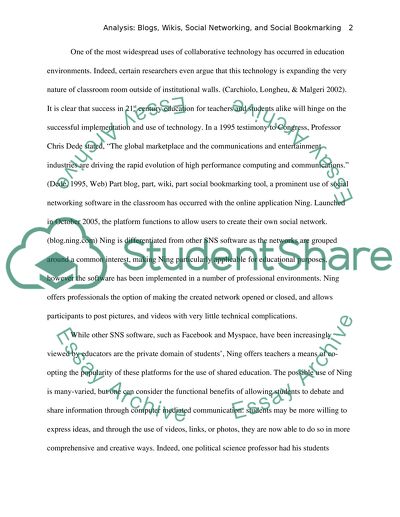Cite this document
(“New Era in Media: Blogs, Wikis, Social Networking, Social Bookmarking Essay”, n.d.)
New Era in Media: Blogs, Wikis, Social Networking, Social Bookmarking Essay. Retrieved from https://studentshare.org/media/1564934-reflective-essay-analyse-blogs-wikis-social-networking-social-bookmarking-tools
New Era in Media: Blogs, Wikis, Social Networking, Social Bookmarking Essay. Retrieved from https://studentshare.org/media/1564934-reflective-essay-analyse-blogs-wikis-social-networking-social-bookmarking-tools
(New Era in Media: Blogs, Wikis, Social Networking, Social Bookmarking Essay)
New Era in Media: Blogs, Wikis, Social Networking, Social Bookmarking Essay. https://studentshare.org/media/1564934-reflective-essay-analyse-blogs-wikis-social-networking-social-bookmarking-tools.
New Era in Media: Blogs, Wikis, Social Networking, Social Bookmarking Essay. https://studentshare.org/media/1564934-reflective-essay-analyse-blogs-wikis-social-networking-social-bookmarking-tools.
“New Era in Media: Blogs, Wikis, Social Networking, Social Bookmarking Essay”, n.d. https://studentshare.org/media/1564934-reflective-essay-analyse-blogs-wikis-social-networking-social-bookmarking-tools.


